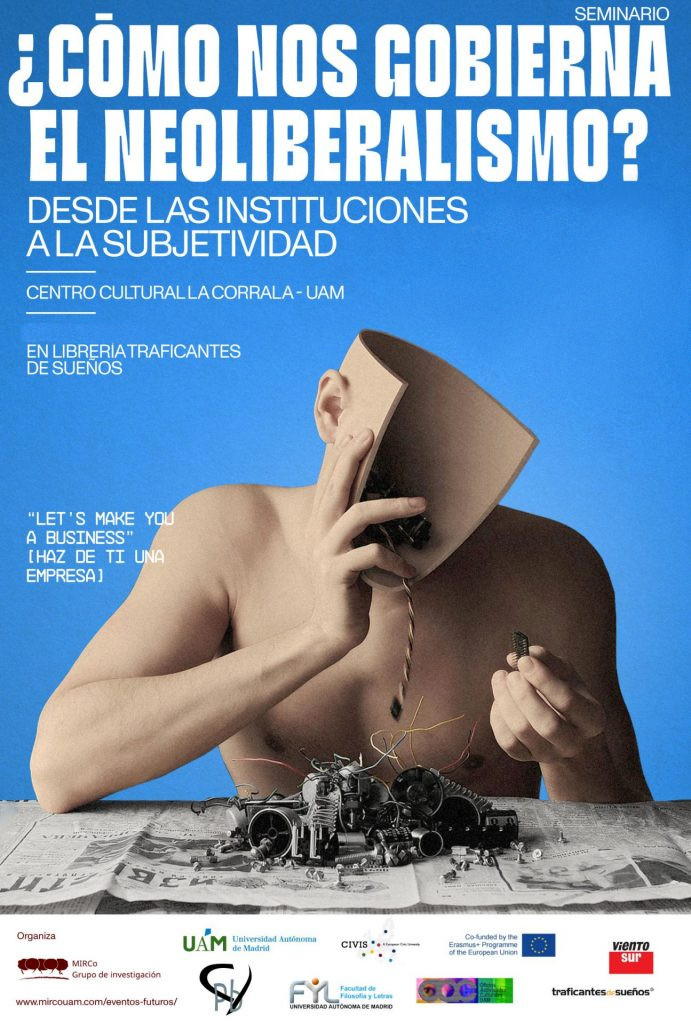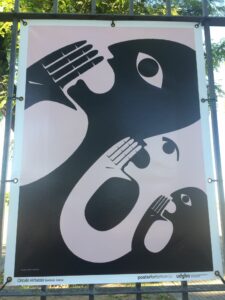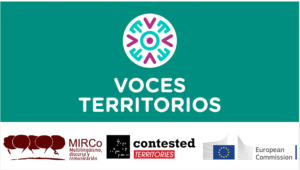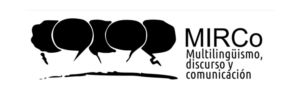On the occasion of both the presentation of the research center MIRCO (Multilingualism International Research Center & discourse Observatory) and the launch of our book Language and Neoliberal Governmentality (Martín Rojo & Del Percio in Routledge 2019), MIRCO -in its twentieth anniversary as a research group-, we host an international and multidisciplinary seminar, which will be also integrated into the doctoral training programme of the UAM. The aim of the seminar was to reflect on a crucial issue today: How does neoliberalism govern us? Today, neoliberalism is a form of governance that extends its market logic beyond the economy, molding our public and private lives. Neoliberal principles of a free market like globalization, deregulation, flexibility, and competition have permeated health and educational institutions, imposed the entrepreneurial productive model, and turned us into clients of public services. Education prioritizes the formation of new elites with access to global mobility, and punishes those who don’t reach this goal, ultimately restricting the porosity of borders. The commodification affects both human expressions and the management of common goods. We used to build connections and create community with languages; now languages are the key to compete in the job market. At work, flexibility, mobility, and insecurity are constant realities that generate inequality and create paralegal spaces due to their lack of transparency. All professions respond to a corporate logic, which makes us consultants or entrepreneurs. In this way, we are encouraged to manage ourselves as businesses, acquire competencies, titles, and language skills, exploit ourselves to survive in a competitive world, and increase our own productivity as well as that of the organizations for which we work. As entrepreneurial subjects, we sometimes feel like winners, but many other times, like losers.
Many unanswered questions emerge from this situation, and we must respond. What makes it possible for neoliberal principles to colonize the different spheres of our lives? How can we counteract this neoliberal rationality and revert the practices and techniques that govern our conduct and mold our subjectivities? How is neoliberal discourse constructed and what role does it have? How can we avoid reproducing and internalizing it?
With the goal of answering these questions this seminar, organised as a transdisciplinar training activity for PhD students, brings together several researchers with long trajectories studying neoliberalism, such as Christian Laval and Edgar Cabanas, as well as young researchers who will facilitate workshops about their research interests (from the neoliberalization of education and the stylization of youth poverty to the presentation of neoliberal subjects on Tinder). In this same framework, we will present the book Language and Neoliberal Governmentality (Martín Rojo & Del Percio in Routledge 2019), which addresses many of these topics through an empirical study of neoliberal rationality, and the discursive and linguistic mechanisms through which it permeates society and subjects. Furthermore, we will celebrate the 20th anniversary of the UAM research group MIRCo (Multilingualism, Social Identities, Intercultural Relations and Communication).
Watch preliminary session
To watch the preliminary session of the seminar, with an introduction to all the topics we discussed, you may click on this link.

Image: Kosmur
Session 1- Opening Lecture: The Two Faces of the Contemporaneous Neoliberalism
Speaker: Christian Laval (Paris 10). In French with simoultaneous interpretation.
Date to be determined. Conference Hall-Centro cultural La Corrala
Neoliberalism is not a completely homogeneous doctrine, nor is it a once and for all rigid form of power. The concept of neoliberalism refers to the forms of power that impose a market logic on society and a certain type of social and subjective operation on individuals, one of the entrepreneur of oneself or one of human capital. Therefore, it is essential to understand the profound transformations in society. However, this concept should be used in a flexible and broad enough way to allow us to identify and analyze the historical metamorphoses of this form of power and the different national contexts in which it unfolds.
Session 2 – Neoliberal Subjects and Language (book launch)
Speakers: Eva Codó (UAB), Alfonso del Percio (UCL) and Luisa Martín Rojo (UAM).
Moderated by: Marta Castillo
Date to be determined. Bookstore Traficantes de Sueños
Authors of the book Language and Neoliberal Governmentality (Routledge 2019) examine how the current vision of languages and multilingualism is spreading and naturalizing a neoliberal rationality, both in education and in the labor market.
Neoliberal globalization has turned languages into commodities that are traded on markets and ensure the global circulation of capital, goods and people. In this framework, people are pushed to treat languages as mere resources, or capital, in a symbolic way. They accumulate language knowledge as if it were only a personal investment to achieve personal (such as a more attractive and cosmopolitan social image) or professional goals.
Thus, the needs of the global marketplace shape personal choices. Furthermore, neoliberal discourses persuade us that lack of competences (even not speaking as natives) in languages valued by the international market, such as English, entails a personal failure. We thus assume as personal responsibility something that is nothing more than the effect of growing social, educational and mobility inequality.
Session 3 – Round Table: The Disturbing Expansion of Denialism
Speakers: Angela D. Buscalioni (CIPb, Centre for the Integration of Paleobiology, UAM), Jesús Ignacio Catalá Gorgues (Universidad CEU Cardenal Herrera. Valencia)
Date to be determined. Sala D (Mixta) Plaza Mayor UAM.
Denialism presents the history of knowledge and of humanity as a set of ideologies whose facts are shown as mere beliefs organized to manipulate individuals. Denialism delegitimizes scientific theories related to the history of living beings (evolution), climate change and its future effects, and introduces suspicions about the proofs we have on holocausts and gender inequality. Therefore, denialism has strong political and cultural roots that must be analyzed, especially through the paradigm of postmodern culture. The objective of this round table is to discuss what the different types of denialism have in common and classify them according to their social and cultural representations. Through this analysis we can understand how denialism has seized significant spaces in our societies, and explore its potential links with neoliberalism.
Session 4 – Plenary Conference: Happiness, Education and Neoliberalism: Positive Education and its Problems
Speaker: Edgar Cabanas (Universidad Camilo José Cela)
Date to be determined. Conference Hall – Centro Cultural La Corrala
Happiness has become and epidemic phenomenon that has enormous impact on capitalist societies. Over the past two decades, concern (or obsession, rather) with subjective wellbeing “positive emotions” and personal development has taken center stage in the spheres of psychotherapy, work, and of course, education on a global scale. In this respect, the movement known as “positive education” is particularly relevant. Promoted by positive psychologists (in cahoots with big corporations, capitalist lobbies, large banks and other private foundations), the apparently scientific and ideologically neutral project of “positive education” is to establish happiness as the priority and most important objective of any educational institution, mainly in primary and secondary schools.
Session 5 – Closing Lecture: Language and Securitization
Speaker: Ben Rampton (London King’s College). In English without simoultaneous interpretation.
Date to be determined. Conference Hall – Centro Cultural La Corrala
This presentation explores the relationship between linguistics and critical security studies (CSS) in contexts where legacies of violent conflict, unease and (in)security permeate everyday life more and more deeply, where schools, nurseries, hospitals and community centres are becoming sites of security, and the security apparatus is becoming more diffuse and routine. Drawing on two projects studying language socialisation in contexts affected by large-scale conflict, as well as on an interdisciplinary dialogue developing between CSS and linguistic ethnography, it questions the adequacy of applied linguistic concepts developed in conditions of peace and stability, and considers some alternatives.
Workshops
Workshop 1: Uncovering and Resisting Neoliberal Discourse: Quality, Freedom, Competition, Law, Compromise, Change, Business
Speakers: Marta Castillo (UAM); Noelia Fernández (UAM);
Date to be determined. Black Classroom – Centro Cultural La Corrala
We often surprise ourselves when we use terms like management, ranking, activities, and trajectories. We talk about how we manage our competencies and abilities, calculate costs and benefits, self-impose jobs or recur to the accumulation of competencies, certificates, or languages…Immersed in the accumulation cycle, we tell ourselves over and over again that this will be the key to a professional future, or even to success. To understand how we have created our neoliberal discourse, in this workshop we will show its complexity, which relies on others for inspiration like social democracy and progressive discourses. Moreover, we will examine some of the signifiers that neoliberalism has appropriated and analyze the reduction of others like “quality,” “liberty,” etc. Lastly, in terms of subject testimonies, we will explore how the colonization of neoliberal discourse can be eroded and look for tools to unlearn the internalization of neoliberal discourses, self-discipline, self-surveillance, etc.
Workshop 2: Love in the Tinder Era: Neoliberals, Cosmopolitans, and Polyglots
Speakers: Constanza Araya (UAM) and Luisa Martín Rojo (UAM)
Date to be determined. Black Classroom – Centro Cultural La Corrala
What images, text, and emoticons have you chosen for your Tinder profile? How do you describe yourself on your profile: a wanderluster, travel addict, world traveler, explorer, world citizen, global or digital nomad? What are your likes and desires? Neoliberal subjects, which are entrepreneurs of themselves, eternally self-taught, and obedient to the “happycracy”, find a flexible, fluid, liquid stage to construct themselves on Tinder profiles. And how can you play this game if you refuse to do what others do, such as taking pictures of yourself making a heart with both hands? What are the alternatives? We will take on these questions among others in this workshop, which will allow us to reflect on love, subjectivity, and neoliberalism.










